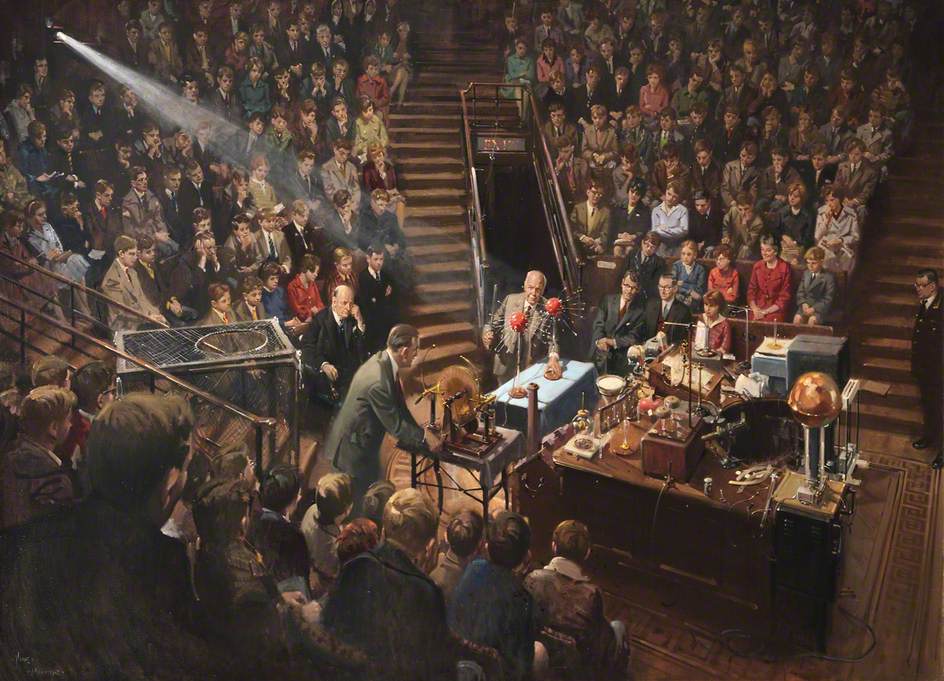Picture: The phycisist Sir Lawrence Bragg at the Royal Institution Christmas lecutre in 1961 - Oil on Canvas, Terence Cuneo, 1962
The weeks leading up to Christmas have always had a special appeal to many students of the natural sciences; mulled wine sold at every corner, an abundance of occasions to socialise, but also a distinct notion that science should not only be taught, but should be actively engaged with. This notion is conveyed by numerous exciting, entertaining, as well as educational Christmas lectures that leave a lasting impression.
In fact, Christmas lectures have a long tradition. Many of them are accessible to the public, and are highly popular due to their spectacular experimental demonstrations. Hence, many Christmas lectures, such as those by the London Royal Institution, have become institutions in their own right, attracting huge audiences that marvel at the many wonders presented by world-class scientists about their disciplines.
This Christmas calendar was conceived with this tradition in mind. It represents our attempt at taking science out of the lab and into the pre-Christmas buzz, and to entertain and educate. In the course of the next twenty-four days, we will present a topic related to Christmas every day from a science perspective. On some days, to spice things up, we will mix in contributions from the areas such as design and history as well. Today, to launch this project, the personal level and some hands-on science shall take centre stage. You are cordially invited to join us today from 4pm in our temporary office space at Gerbergasse 3 in Villach!
If you’d like watch a Christmas lecture online, we’d highly recommend those by the Royal Institution. Their website gives you access to many lectures from past years. If you speak German, you might also want to tune into the Christmas lecture by TU Graz phycisist Gernot Pottlacher, who will present a journey through the phase diagram. It will be streamed live under starting at 16:15 on 12.12.18.
About the author
Lukas Hutter studied chemistry in Graz and Systems Biology at the University of Oxford. He is a co-founder of Biotop and works as a teacher in Villach.
